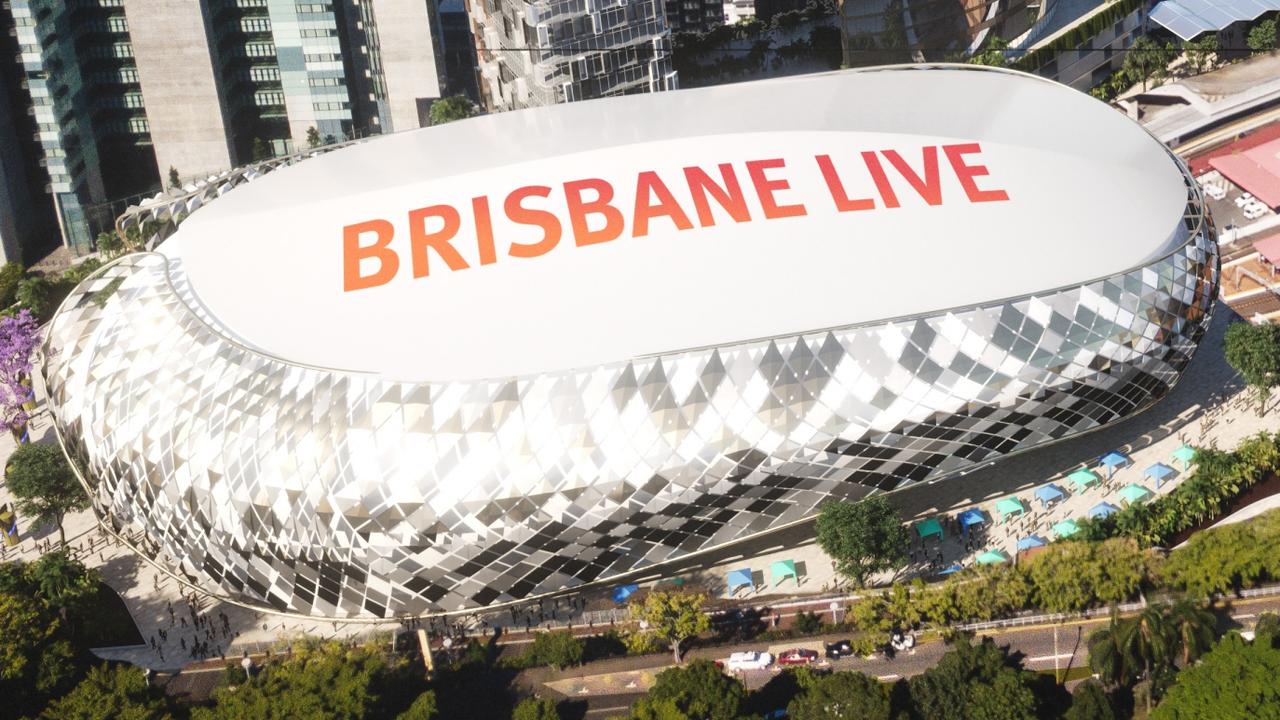Qld traffic could rival that of LA or London: Future Brisbane forum
As the southeast grapples with a nightmare congestion future if urgent action isn’t taken, the state’s “biggest traffic day ever” has been revealed.
Future QLD
Don't miss out on the headlines from Future QLD. Followed categories will be added to My News.
Without significant transport investment, Brisbane’s traffic congestion could rival that of Los Angeles and London by the time the 2032 Games take place.
Speaking at Friday’s Courier-Mail Future Brisbane series, Transurban chief executive Scott Charlton shared modelling showing the city’s traffic levels were predicted to climb to be on par with some of the world’s most congested.
“Our traffic modelling predicts the Brisbane congestion rating would reach 31 per cent by 2031,” he said.
“And I know that maybe doesn’t sound like a big number, but that’s just a couple of points below Rome, London and LA, where congestion levels are currently around 33 per cent.”
Such a climb would also put Brisbane on track to have congestion levels similar to that of Brazil’s Sao Paulo – a metro region home to more than 22 million people.
Mr Charlton also revealed Queensland had its biggest traffic day ever last Friday, which he said was a combination of multiple factors including Schoolies on the Gold Coast.
And while he said as chief executive of a road transport company, car use was “good for business”, securing the liveability of the city and the region was vital.
“The most productive, liveable cities have efficient transport networks and integrate roads and public transport to meet demand,” Mr Charlton said.
“So taking into account forecasts and data like this, I believe there is more to think about and if any other major project development would be considered, again I would say it’s time for action.
“Because infrastructure projects take a tremendous amount of time.
“They take years of planning and collaboration as well as investment and resources.
“And it’s only getting harder and longer.
“The construction phase alone on Cross River Rail is expected to take seven years.
“That is without any supply chain disruptions or labour shortages.”
But Mr Charlton also said there was good news – there’s “nothing like a deadline which we would say and deadline to us as an opportunity to get transport projects moving again”.

The event also heard from University of Queensland Vice-Chancellor Professor Deborah Terry, Brisbane Airport Corporation chief executive Gert-Jan de Graaff, St Baker Energy founder Trevor St Baker and BOQ chief economist Peter Munckton, in a panel discussion with Courier-Mail editor Chris Jones.
The take-up of electric vehicles was an essential part of Brisbane’s transport future, Mr St Baker said, and being recognised as an Olympic city at the same time as the electrification of transport would be a game-changer.
“Brisbane is the technology capital of electric car fast-charging – that’s already happened,” he said.
“We developed that, we’re at the centre of that and we’re exporting those ideas to the rest of the world.
“Once you’ve got that public transport infrastructure, you’ve got to use different technology solutions for that last mile connection.”
On the most crucial part to be thinking about in terms of transport and mobility over the next decade, Prof Terry said Queensland needed to have a “clear plan, an ambitious plan”.
“It’s got to be courageous, and it has got to be linked to what we know we need to do to get to a net zero future,” she said.
“And it’s got to be in the context of understanding what the legacy is and the legacy is to ensure that Brisbane remains a highly liveable city that is well positioned for the economy.”
Mr de Graaff pushed for mass transit options to the airport for travellers and workers – and called for the anti-competition clause for the Brisbane Airtrain to be scrapped to make it happen.
“We’re connecting the world through the air – connecting the world over land is equally important, you need both networks,” he said.
“Probably the most important one is connecting people, and I think we should talk to each other to set those priorities, what is really going to make a difference and how do we maintain the liveability of the city going forward given the population growth.
“I think it’s all about working together, setting priorities and getting it done – we need to start working on things.”
Olympic and Paralympic legends also shared their vision for how the Games could transform Brisbane, including swimmer and Olympian Emma McKeon.
While she said she couldn’t wait for the Games, the 28-year-old categorically ruled out competing when 2032 rolls around.




